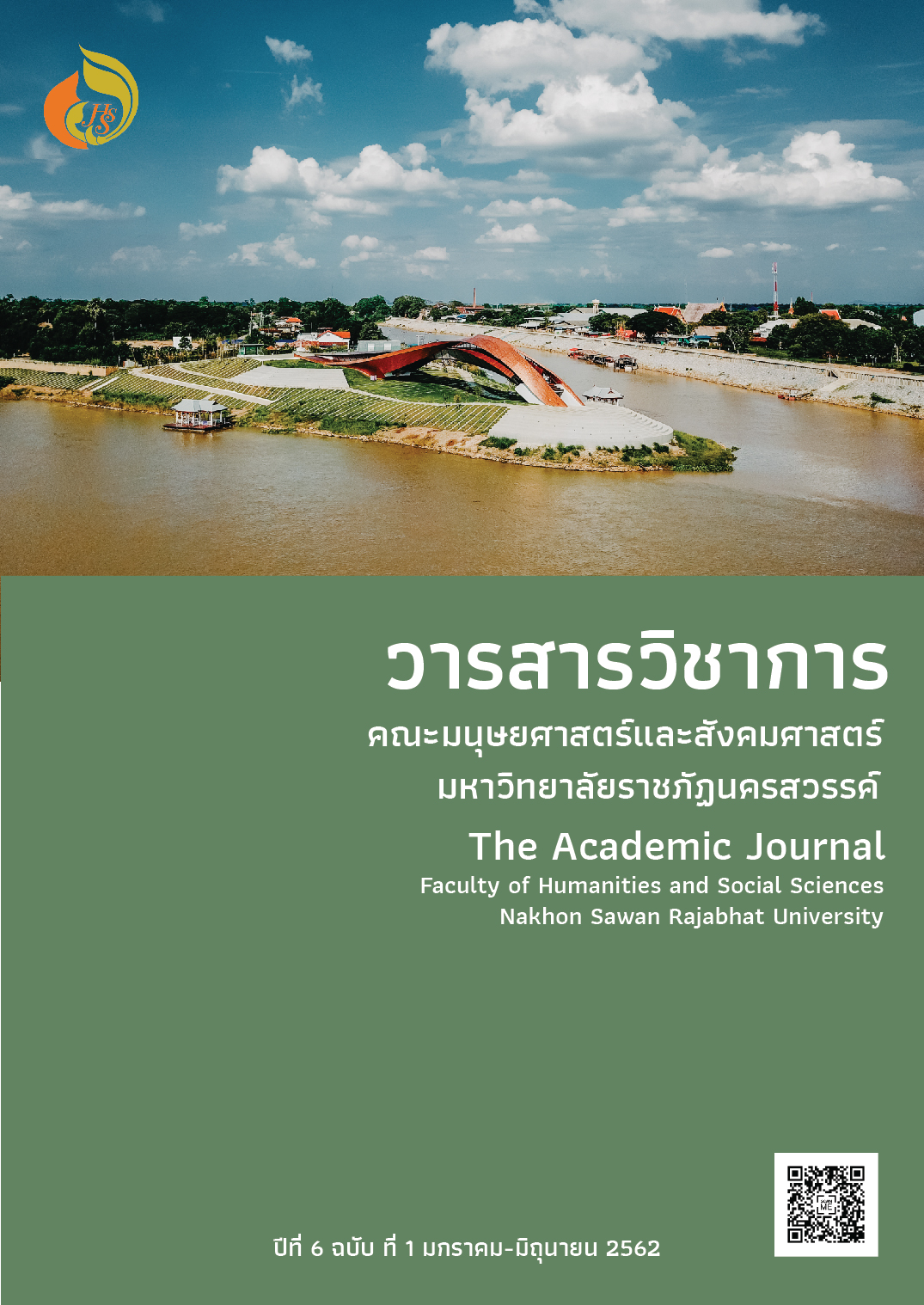A Competency Development Model for Instructional Management of Teachers Who Teach Kindergarteners by Using Thai as a Second Language Based on Teaching Professional Learning Community Concepts
Main Article Content
Abstract
The research objectives were 1) to create the competency development model of
early childhood teachers to instruct early childhood students using Thai as a second language based on the concept of teaching Professional Learning Community and 2) to identify the quality of the competency development model of early childhood teachers to instruct early childhood students using Thai as a second language based on the concept of teaching Professional Learning Community. The sample group consisted of 2 groups which were 1) the sample group used for exploratory factor analysis to identify the elements and indicators of the competency development model of early childhood teachers to instruct early childhood students using Thai as a second language. The sample group consisted of 478 directors and teachers who taught early childhood students using Thai as a second language and 2) the sample group of the draft of the competency development model of early childhood teachers to instruct early childhood students using Thai as a second language consisted of 3 school directors and 3 teachers who taught early childhood students using Thai as a second language. The research instruments were 1) the questionnaire on the opinion of the experts on the consistency of the definition of the elements and the competency indicators to instruct of the teachers 2) the questionnaire on the opinion of the experts related to the draft of the competency development model of early childhood teachers to instruct early childhood students using Thai as a second language 3) the form to record the group conversation of the experts to improve the competency development model of early childhood teachers to instruct early childhood students using Thai as a second language 4) evaluation form on the competency development model of early childhood teachers to instruct early childhood students using Thai as a second language. Exploratory factor analysis, mean, Standard Deviation and content analysis were used. The results demonstrated that:
- The competency development model of early childhood teachers to
instruct early childhood students using Thai as a second language consisted of 4 elements which were 1. development principle 2. Development process which was comprised of awareness step, attend to knowledge and skill step, active learning step and assessment and reflection step. 3. evaluation and development reflection
- The quality of the competency development model of early childhood teachers
to instruct early childhood students using Thai as a second language in terms of feasibility, propriety, accuracy, and utility were in the highest level.
Article Details
References
สอนของครูผู้สอนนักเรียนระดับปฐมวัยที่ใช้ภาษาไทยเป็นภาษาที่สอง. วารสารมหาวิทยาลัย
ราชภัฏยะลา 13 (1) มกราคม-เมษายน 2561: 1-12.
กนิษฐา เชาว์วัฒนกุล และ วรงค์ศรี แสงบรรจง. (2551). การศึกษารูปแบบการนิเทศวิจัยในชั้นเรียนของ
นิสิตฝึกประสบการณ์วิชาชีพครูสาขาคณิตศาสตร์. กรุงเทพฯ: มหาวิทยาลัยเกษตรศาสตร์.
กนิษฐา ทัพมอญ. (2559). การพัฒนารูปแบบการจัดประสบการณ์ตามแนวคิดสมองเป็นฐานและการเรียนรู้
แบบร่วมมือที่ส่งเสริมทักษะกระบวนการทางวิทยาศาสตร์สําหรับเด็กปฐมวัย. ดุษฎีบัณฑิต สาขาหลักสูตรและการสอน ภาควิชาการศึกษา คณะศึกษาศาสตร์ มหาวิทยาลัยนเรศวร.
กระทรวงศึกษาธิการ. (2546). หลักสูตรการศึกษาปฐมวัย พุทธศักราช 2546. กรุงเทพฯ: คุรุสภาลาดพร้าว.
ถวิล ธาราโภชน์และศรัณย์ ดำริสุข. (2548). พฤติกรรมมนุษย์กับการพัฒนาคน. พิมพ์ครั้งที่ 5.
กรุงเทพฯ: อักษรพิพัฒน์.
พศิน แตงจวง. (2554). รูปแบบการพัฒนาสมรรถนะบุคลากรทางการศึกษา. กรุงเทพฯ : ดวงกมลพับลิชชิ่ง.
วัชรา เล่าเรียนดี. (2553). การนิเทศการสอน. นครปฐม: โรงพิมพ์มหาวิทยาลัยศิลปากร.
วสันต์ ปานทอง. (2556). รูปแบบการพัฒนาครูเพื่อศิษย์ในสถานศึกษา สังกัดสำนักงานเขตพื้นที่การศึกษา
ระดับประถมศึกษา. วารสารศึกษาศาสตร์ มหาวิทยาลัยนเรศวร.15 (พิเศษ): 193-205.
วรลักษณ์ ชูกำเนิดพร้อมคณะ. (2557). บทความโรงเรียนแห่งชุมชนการเรียนรู้ทางวิชาชีพครู เพื่อการ
พัฒนาวิชาชีพครูที่เน้นผู้เรียนเป็นหัวใจสำคัญ. Academic Sevices Journal Prince of Songkla University Vol.25 N0.1, Jan-Mar 2014.
สุชาติ ผู้มีทรัพย์และคณะ. (2552 ). รูปแบบการพัฒนาครูผู้สอนระดับการศึกษาขั้นพื้นฐานสำหรับ
สถานศึกษานอกเขตชุมชนเมืองสังกัดสำนักงานการศึกษาประถมศึกษากำแพงเพชรเขต 1 และ 2
วารสารศึกษามหาวิทยาลัยนเรศวร ปีที่ 16 ฉบับที่ 2 เมษายน-มิถุนายน 2557.
สุรพงษ์ แสงสีมุข. (2557). รูปแบบการพัฒนาสมรรถนะของครูในสถานศึกษา สังกัดสำนักงานเขตพื้นที่
การศึกษาประถมศึกษา. ดุษฎีบัณฑิต สาขาบริหารการศึกษา คณะศึกษาศาสตร์
มหาวิทยาลัยนเรศวร.
สุวิไล เปรมศรีรัตน์และคณะ. (2553). โครงการวิจัยปฏิบัติการเรื่อง “การจัดการเรียนการสอนโดยใช้
ภาษาท้องถิ่นแบะภาษาไทยเป็นสื่อ : กรณีการจัดการศึกษาแบบทวิภาษา (ภาษาไทย-ภาษา
มลายูถิ่น) ในโรงเรียนเขตพื้นที่ 4 จังหวัดชายแดนภาคใต้”. มหาวิทยาลัยมหิดล.
สำนักงานเลขาธิการสภาการศึกษา. (2555). สภาวการณ์การศึกษาไทยในเวทีโลก พ.ศ. 2555. กรุงเทพฯ:
พริกหวานกราฟฟิค จํากัด.
สำนักวิชาการและมาตรฐานการศึกษา. (2560). แนวทางการจัดประสบการณ์การเรียนรู้ภาษาไทย-
ท้องถิ่นสำหรับผู้เรียนที่ใช้ภาษาท้องถิ่นสื่อสารในชีวิตประจำวัน ระดับปฐมวัย.
กรุงเทพฯ: โรงพิมพ์คุรุสภาลาดพร้าว.
สิรินภา กิจเกื้อกูล. (2553). การสังเคราะห์รูปแบบการพัฒนาครูตามแนวปฏิรูป:ประสบการณ์จาก
วิทยานิพนธ์ พุทธศักราช 2543–2551. วารสารศึกษาศาสตร์ มหาวิทยาลัยนเรศวร.
Glickman, C.D., Gordon, S.P., Ross-Gordon, J.M. (1995). Supervision and instruction: A
developmental approach. 3rd ed. Massachusetts: Allyn and Bacon, Inc..
Costa and Garmston, Costa, Arthur L., and Robert J. Garmston. (2002). Cognitive Coaching,
Foundation Seminar Learing Guide. 5th ed. Highlands Ranch, Co: Center for Cognitive Coaching.

